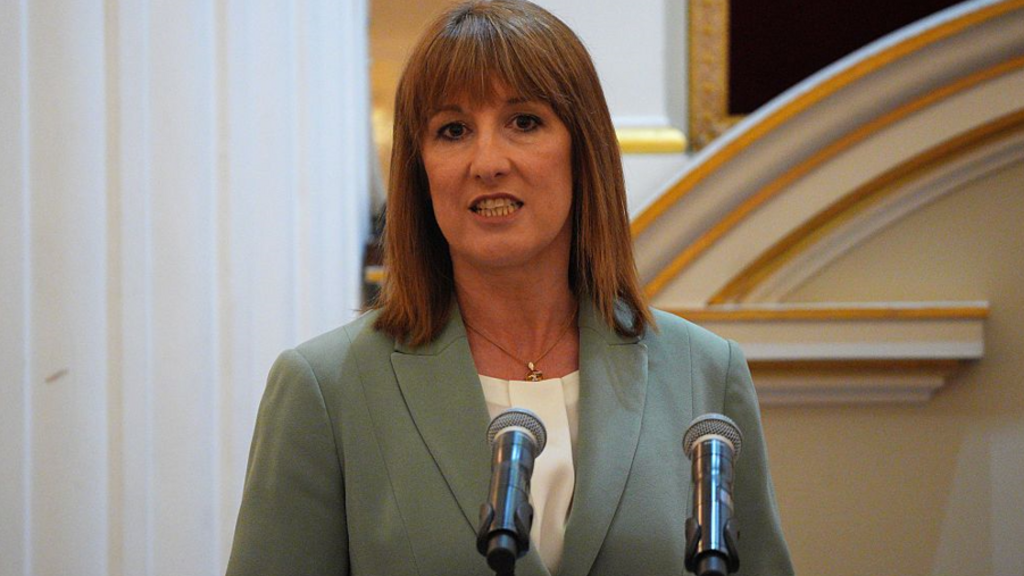The Chancellor of the Exchequer has urged the financial industry to overhaul the “negative” perception surrounding investment in stocks and shares, emphasizing its potential to stimulate economic growth.
In a recent address, Rachel Reeves stated, “For too long, we have presented investment in too negative a light, quick to warn people of the risks without giving proper weight to the benefits.”
The government is collaborating with the Financial Conduct Authority to bolster support for prospective investors.
This initiative follows Reeves’ decision to step back from plans to reduce the tax-free limit on cash Individual Savings Accounts (Isas) after facing opposition from lenders. She is now focused on redirecting a portion of the £300 billion held in these accounts toward investments in UK companies.
Speaking at the annual Mansion House dinner in London, Reeves told business leaders, “Our tangled system of financial advice and guidance has meant that people cannot get the right support to make decisions for themselves.”
She announced that the government is consulting with the Financial Conduct Authority “to introduce a brand-new type of targeted support for consumers ahead of the new financial year.”
The government is under pressure to boost economic growth after recent figures revealed a contraction in the UK economy in May, following a similar downturn in April.
Meanwhile, reversals on welfare benefits and the winter fuel allowance have fueled speculation about potential tax increases in the upcoming Budget.
Some Labour MPs have previously advocated for a wealth tax, such as a 2% levy on assets exceeding £10 million, which they estimate could generate £24 billion annually.
At the Mansion House event, Sir William Russell, former Lord Mayor of the City of London, told the BBC, “Unfortunately, there’s going to be this pause between tonight and October. In a way, that’s not good because there’ll be speculation about wealth tax which I don’t think will happen, this government is much more sensible than that.”
However, he added, “That pause doesn’t help because there is uncertainty, and if there’s one thing we all would agree with, the City does not like uncertainty.”
Reeves emphasized that the new measures to encourage consumer investment would enable “savers [to] reap the benefits of UK economic success.”
It is important to note that the value of investments in assets like shares can fluctuate, and savers have traditionally been cautious due to the associated risks, even though the purchasing power of savings can be eroded by inflation.
The government has previously encouraged public participation in share ownership of UK companies, including the 2013 flotation of Royal Mail on the London Stock Exchange.
A notable example is the 1986 privatization of British Gas, during which Margaret Thatcher’s government launched the “Tell Sid” campaign, featuring TV advertisements that encouraged viewers to inform “Sid” about the opportunity to buy shares in British Gas.
Referring to her recent experiences—including an emotional appearance in the House of Commons—Reeves recounted a conversation with a student who asked her what her dream job would be.
“Given the events of the last few weeks, I suspect many of you would sympathise if I had said “anything but chancellor”,” she joked with the audience. “But I didn’t.”
In her speech, Reeves affirmed her intention to “continue to consider further changes to ISAs, engaging widely over the coming months.”
She also elaborated on planned reforms to the UK’s financial services sector, including regulatory changes.
“In too many areas, regulation still acts as a boot on the neck of businesses,” she stated. “Choking off the enterprise and innovation that is the lifeblood of growth.”
She urged regulators in other sectors “not to bend to the temptation of excessive caution but to boldly regulate for growth in the service of prosperity across our country.”
Prior to his own address at the Mansion House gathering, Bank of England Governor Andrew Bailey was questioned about the potential trade-off between stability and growth.
Mr. Bailey has historically expressed caution regarding deregulation.
However, he told the BBC, “In no way am I suggesting that all our rules are perfectly formed so no, there isn’t a trade-off, but that doesn’t mean to say that we don’t change and modernise the system and keep it up to date – we balance those two things.”
Andrew Bailey tells the Times he believes “the path is downward” on interest rates.
The economy contracted in May for the second month in a row, adding to pressure on the chancellor.
The boss of the CBI says he would support cutting the allowance on cash ISAs to encourage more people to invest in shares.
A report by MPs says the product needs to be reformed and many savers who have been in touch tend to agree.
The cost of UK government borrowing falls and the pound rallies as the PM says he works “in lockstep” with Rachel Reeves.

